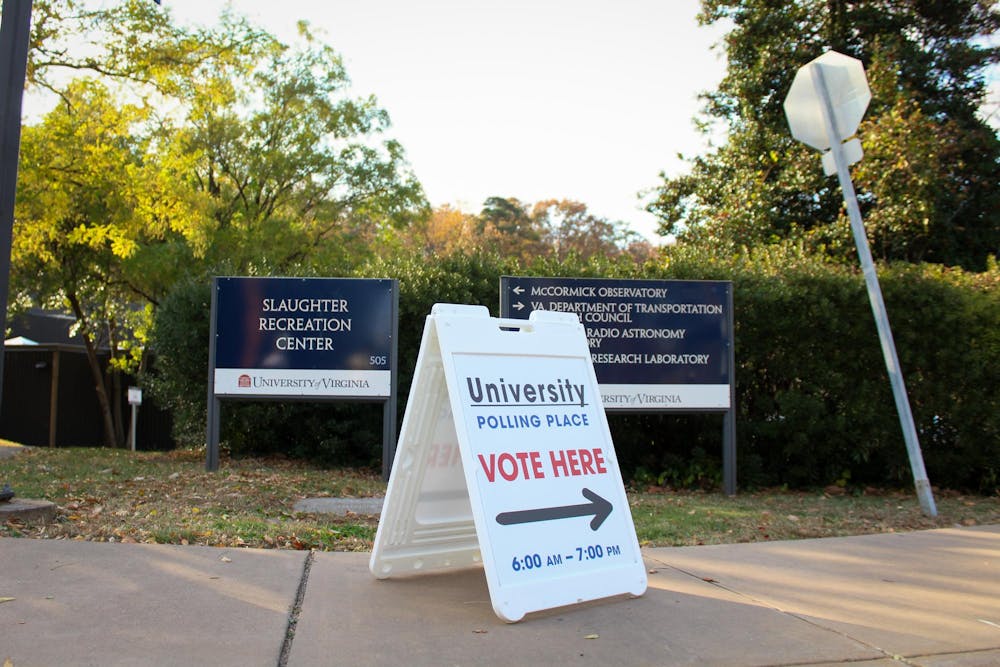A Navy veteran of 25 years. A convert to Evangelical Christianity. A champion of Trump-era social conservatism, all while endorsed by the man himself. In many ways, he is the prototypical, contemporary Republican Party candidate. But what sets Hung Cao apart — and the factor his campaign seems to be hedging its bets on — is his unique status as a Vietnamese refugee. Throughout his campaign, Cao has utilized his background as a Vietnamese refugee and Asian American to form a narrative that might otherwise seem unauthoritative. Cao’s rhetoric, however, fundamentally simplifies the history and experience of his people, neatly packaging it to push an agenda that hardly has anything to do with the interests of those Cao might claim to represent.
Sabato’s Crystal Ball currently predicts a comfortable victory for Kaine over Cao in November’s Senate election, which would only further extend the 22-year period of Democrat domination of Senate seats in Virginia. Given this drought, it would perhaps be logical for the Virginia GOP to seek a moderate who can appeal to moderate voters. Cao, however, can hardly be described ideologically as a moderate — he has embraced a more brash, populist personality common among Trump loyalists and appears to be even farther right than the ever-divisive former president. It seems the GOP instead selected Cao because they believed that fielding a minority candidate from an immigrant background may increase their chances at pulling off an upset in our now blue state. Lending credence to this notion is the fact that populist rhetoric combined with Cao’s background are the foundation of his campaign.
The most thorough account of Cao’s worldview can be found in his recently published memoir, “Call Me an American.” A quickly noticeable theme in the book is his numerous references to “Marxism” and “Communism.” These words are, understandably, of deep significance to Cao and many other Vietnamese Americans, who fled a regime that bore the banner of these ideologies.
Cao, however, uses these words indiscriminately, employing them as swear words to describe various things he disagrees with. In one instance, he equates “the undeniable realities of communism” under Pol Pot, Mao Zedong and Joseph Stalin to the “expansion of social welfare programs, tuition forgiveness and government-run healthcare.” Framing the proposed policies of his opponents as adjacent to those of autocratic, genocidal regimes, his attacks come from an angle that almost no one but a Vietnamese refugee could take while seeming legitimate.
Despite the repeated allusions to “Marxism” and “Communism,” Cao’s memoir makes no real effort to define these words or explain why voters should care about them. This is because he does not need to. The use of ideologies as scapegoats is not unique to Cao’s campaign — in fact, phrases such as “Cultural Marxism” have gained broad momentum in some conservative circles recently. When Cao uses these words, therefore, he mischaracterizes their meaning, matching policy opinions to buzzwords around which negative rhetoric has formed. Thus, comparing single-payer healthcare to communist atrocities is not as shocking as one might think. Examples such as this display Cao’s appeal to conservative circles because the words allow him to easily dismiss counters to his political thought as extremist ideas, without actually justifying this connection.
Cao’s campaign is not the first encounter between the GOP and Vietnamese Americans, a historically right-leaning demographic, especially among Asian Americans. The collective experience of Vietnamese Americans fleeing a Marxist-Leninist regime is pointed to as a decisive factor in the group’s rightward political leanings. It may seem inevitable then that Cao, as a representative of this community of over 2 million, 60,000 of whom live in Virginia, would follow this trend. However, other Vietnamese candidates such as Illinois State Representative Hoan Huynh have successfully spoken to other interests reflective of the Vietnamese-American experience as immigrants and refugees.
While Cao uses his family’s refugee experience to denounce illegal immigration and advocate for heightened border security, Huynh uses that same experience as a pretext for supporting Chicago’s current status as a sanctuary city and for public investment in small — often immigrant-owned — businesses. Huynh’s campaign demonstrates that Vietnamese-American politics can reflect that group’s values beyond a staunch opposition to communism. The irony in comparing the platforms of Cao and Huynh is that it reveals something crucial about the nature of running as “the Vietnamese” candidate. When it comes to the policies that truly affect the lives of Americans, that label on its own means absolutely nothing. The way in which being Vietnamese might inspire one to serve his community is up to that individual alone.
The use of terms like "Communism" and "Marxism" as catch-all boogeymen for progressive policies is an unfortunately familiar trend. But it highlights an effort to frame political opponents as existential threats rather than policy rivals. Cao’s campaign exemplifies this approach, leveraging his personal history to add a veneer of authenticity to his critiques. This tactic by Cao to create identity-driven narratives that reinforce conservative fears may resonate at first glance, but only highlights the limitations of using group affiliation as a substitute for substantive policy engagement. The stakes are especially high this year, and Virginia voters have the power to reject hollow rhetoric and demand candidates who prioritize meaningful change over soundbites.
Viet Huynh is an opinion columnist who writes about politics for The Cavalier Daily. He can be reached at opinion@cavalierdaily.com.
The opinions expressed in this column are not necessarily those of The Cavalier Daily. Columns represent the views of the author alone.







